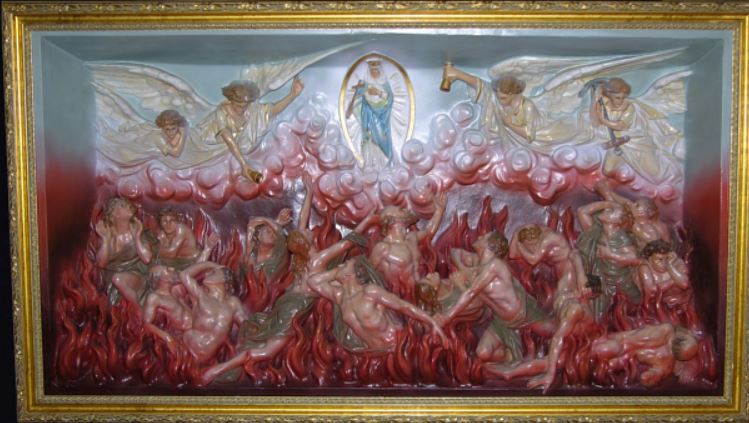Amongst the Christians of the second and third centuries there was a widespread belief that the soul when it leaves the body enters upon an intermediate state, to be exchanged at the resurrection for one of eternal duration, either of happiness or misery. Many believed also that for the righteous this inter mediate state would come to an end a thousand years before the general resurrection. This was the doctrine of the Millennium. It was supposed also that the souls of the righteous while in their separate abode, anxiously look forward to the time of their release, and it was for this release as well as for their refreshment during the term of imprisonment, that their surviving friends were accustomed to offer prayer.
An illustration of this belief is to be found in the narrative of Perpetua’s martyrdom. When she was in prison, as related in an earlier chapter, she prayed for her little brother, whom she saw tormented with thirst in a gloomy place: and in answer to her prayer the gloom gave way to light, and her brother, refreshed with abundance of water, ran off to play joyously after the manner of children. “By this,” she says, “I understood that he was translated from the place of punishment.”
Origen’s inquisitive mind often busied itself with speculations concerning the nature and destiny of the soul, and he came to the conclusion that no human being at the time of death is so entirely free from sin as to be fit for heaven, He held that every disembodied soul, even of the best of men, must undergo purification by fire, but he supposed that this was to take place, not immediately after death, but at the time of the final resurrection.
Thus did the doctrine of purgatory begin to spring up, an evil weed, which, nurtured by the Church of Rome, has done so much to keep men’s souls in darkness. It is a doctrine which may be safely said to have no foundation in Holy Scripture, nor is any allusion made to it by the writers of the sub- apostolic age. It is probable that the general belief at this period regarding the pardon and purification of the dead was of a much milder form than it took in the narrative of Perpetua’s vision, and very far removed from the purgatory of later times. It thus appears in the Apostolical Constitutions : “Let us pray for every brother who is at rest in Christ, that God the lover of mankind, who has received his soul, may forgive him every sin, voluntary and involuntary.” — Early Church History to the Death of Constantine, 1906, Pg 247.
Purgatory is an invention of the Church of Rome. In case one has ever wondered how it came into being, here we have the historical account. Why does one think this was invented? History tells us the answer to this question. But, what have you been told?

